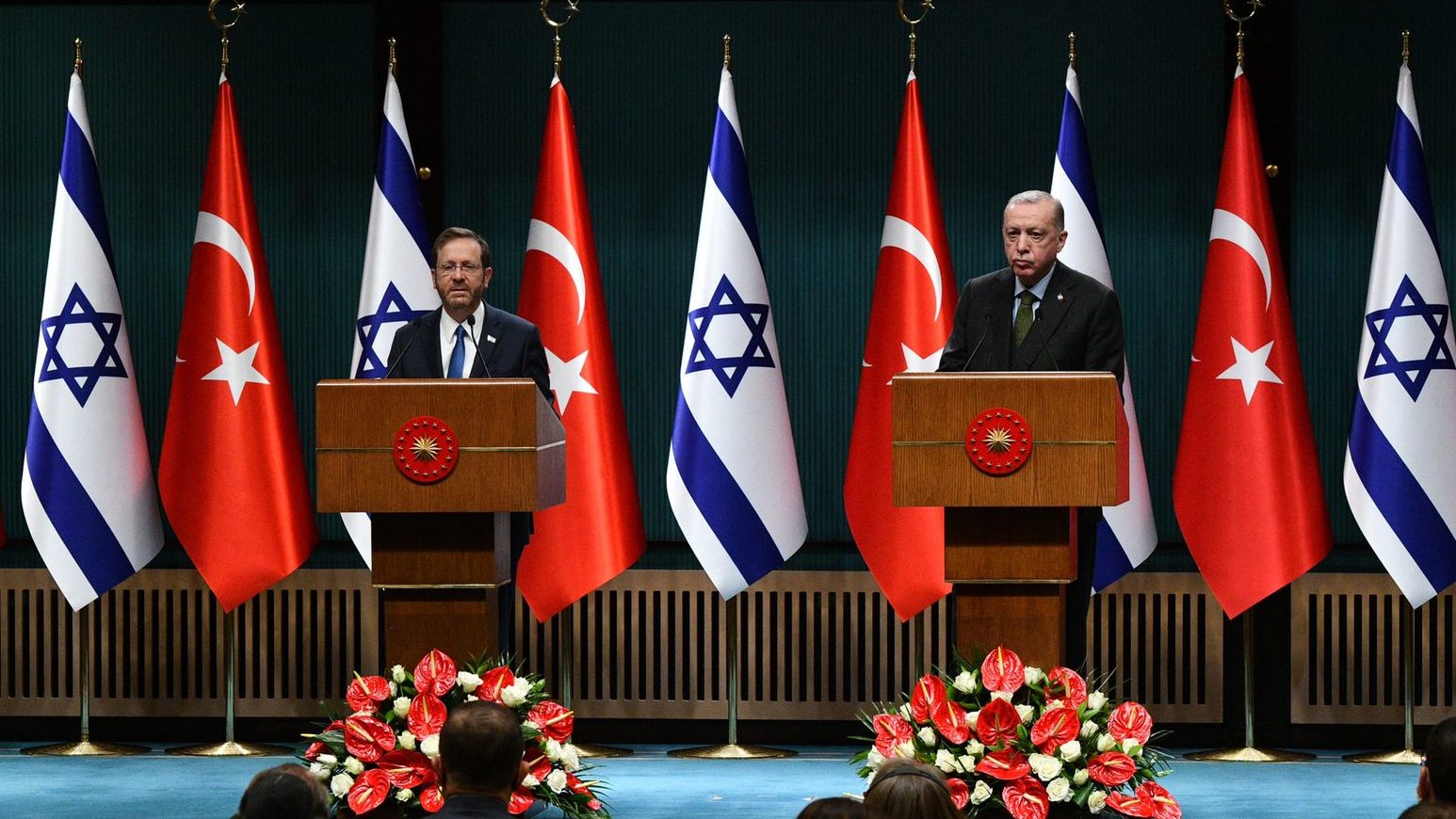Erdogan Is Reconsidering His Foreign Policy
An-Nahar, Lebanon, May 29
It seems as if Turkish President Recep Tayyip Erdogan believes that the current geopolitical conditions – the war in Ukraine, the world’s need for alternative energy sources, and the ongoing situation in Syria – are the most appropriate ones for him to use to reposition Turkey in the map of international relations, in an attempt to strengthen its position or fortify it. On the political level, Erdogan took a dramatic turn away from his long-standing policy of hostility to the Gulf by warming up his ties with the United Arab Emirates and Saudi Arabia. Similarly, following years of estrangement, his government decided to fully normalize its relations with Egypt. However, the most dramatic change in approach is vis-a-vis Israel. In the past few months, Turkey has openly acknowledged its desire to strengthen its relations with Israel. This was evident in a recent visit made by Turkey’s foreign minister to Israel last week, where he met with senior government officials. It may be worth mentioning here that Turkish-Israeli relations have not been dramatically interrupted beneath the surface over the past years, despite the two governments’ mutual hostility. In other words, most of the heated discourse between the two countries’ leaders was directed mostly at domestic audiences. Indeed, Turkey sees in its relations with the Hebrew state as a window, or an entrance, to strengthen its position with the United States of America, as well as to motivate Israel to take on joint investments in gas exploration in the Mediterranean Sea. Further, Turkey wishes to impose itself in the Syrian arena, through its efforts to fill in the void left by Russian forces, and by blocking Iran’s growing presence in the region. This goal suits Israel and the United States at the same time, especially as the nuclear negotiations with Iran seem to have reached an impasse. On the economic front, it is clear that the energy crisis at the international level, and the European Union’s desperate search for alternative energy imports, serves as a suitable entry point for Turkey to step up its production of oil extracted from the Mediterranean. To do so, it must overcome several political obstacles with its neighbors, including Greece, Cyprus, Egypt and Israel. As for the security aspect, Turkey believes that the Russian war in Ukraine has become an opportunity for it to resurface its idea of the establishment of a safe zone on its southern border with Syria, which would extend 30 kilometers into Syrian territory. Such a move would be a huge win for Ankara, since it would not only strengthen Turkey’s national security, but also undermine any attempt to establish a Kurdish entity in that region. In any case, regardless of Turkey’s success or failure with these new bets, it has become clear that Erdogan is quickly parting ways with his fantasies and illusions of establishing a caliphate or restoring the golden days of the Ottoman Empire. His policies today seem more practical and grounded in reality than they have for many years. – Majid Kayali (translated by Asaf Zilberfarb)
This holiday season, give to:
Truth and understanding
The Media Line's intrepid correspondents are in Israel, Gaza, Lebanon, Syria and Pakistan providing first-person reporting.
They all said they cover it.
We see it.
We report with just one agenda: the truth.



